Georgetown SJP Launches Campaign to Defend Professor Who Called for Iranian Strike on U.S. Base
The extensive letter-writing campaign launched by SJP is urging the university to reinstate Brown, collecting over 950 messages from supporters—nearly double their initial goal
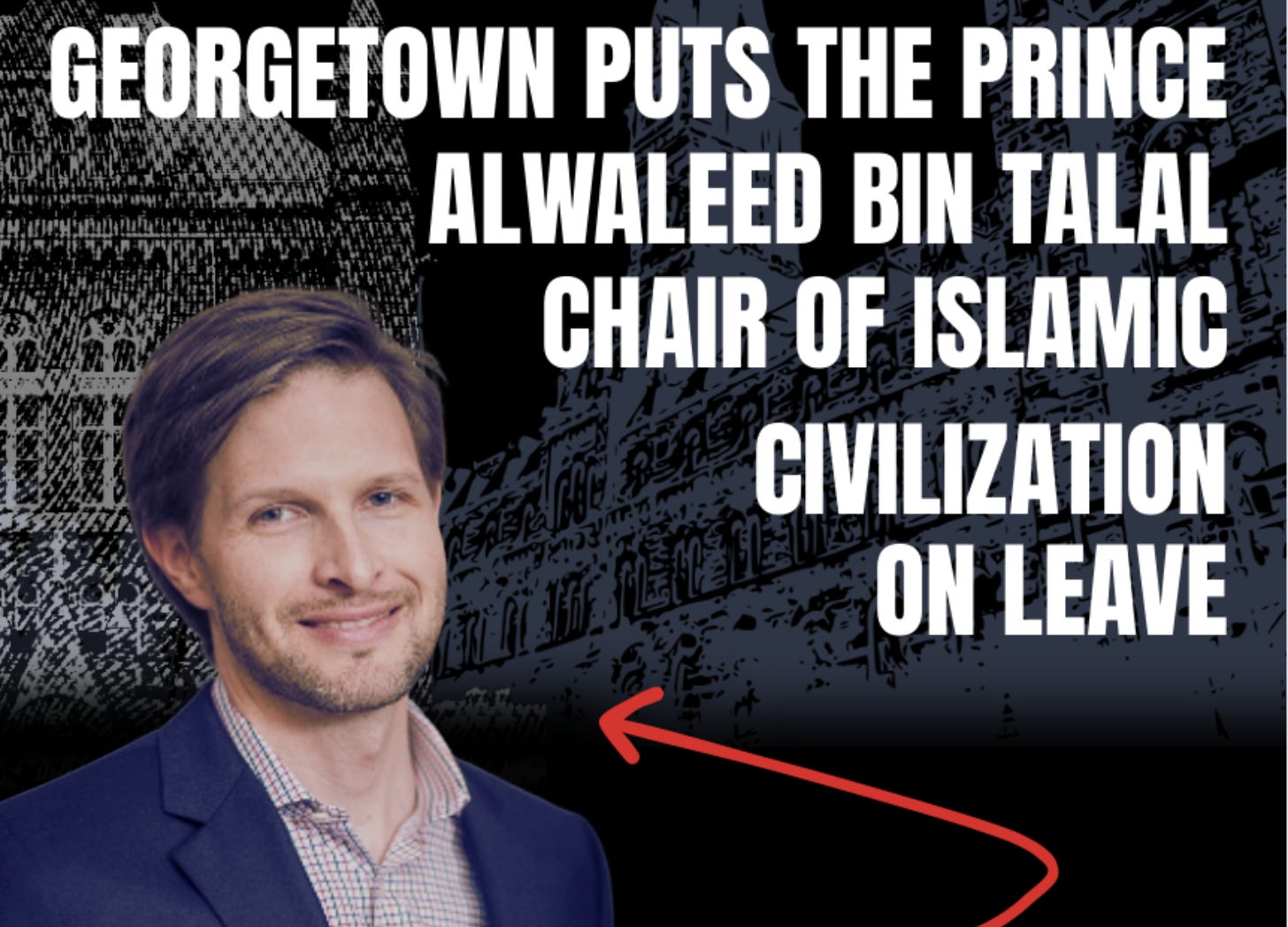
Georgetown University finds itself coddling Professor Jonathan A.C. Brown after he publicly called for Iran to strike a U.S. military base, raising what critics have described as serious questions about the institution's judgment and values. Brown, the Prince Alwaleed bin Talal Chair of Islamic Civilization and former interim chair of the Arabic and Islamic Studies Department, was removed from his leadership position and placed on administrative leave after posting on X in June that he hoped Iran would carry out a "symbolic strike" against a U.S. military base during the Israel-Iran war.
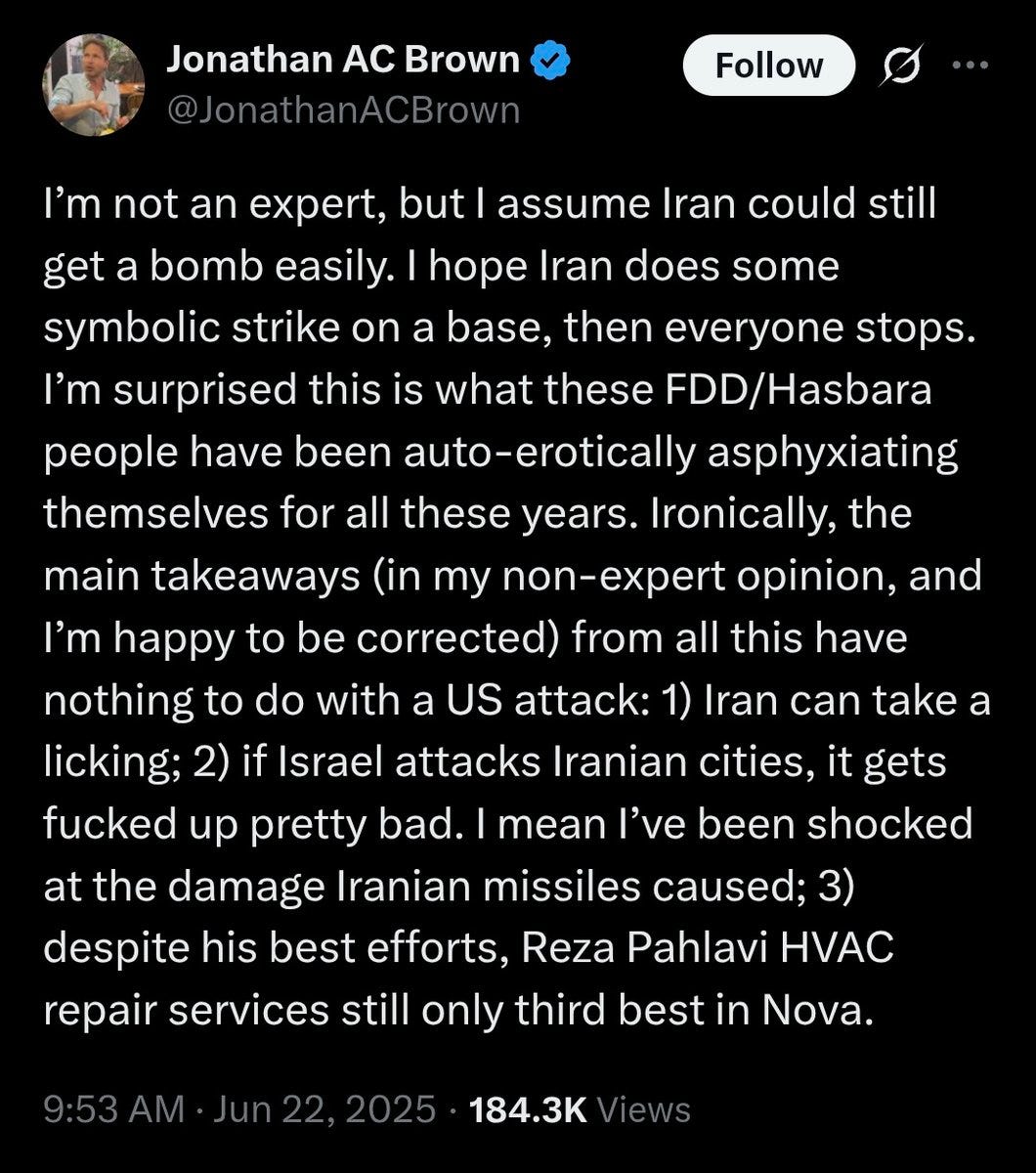
While the university took initial disciplinary action, Georgetown's failure to take strong stances against the activists defending Brown has drawn sharp criticism from those who argue that a university of Georgetown's stature should not provide cover for faculty who openly call for attacks on American military personnel.
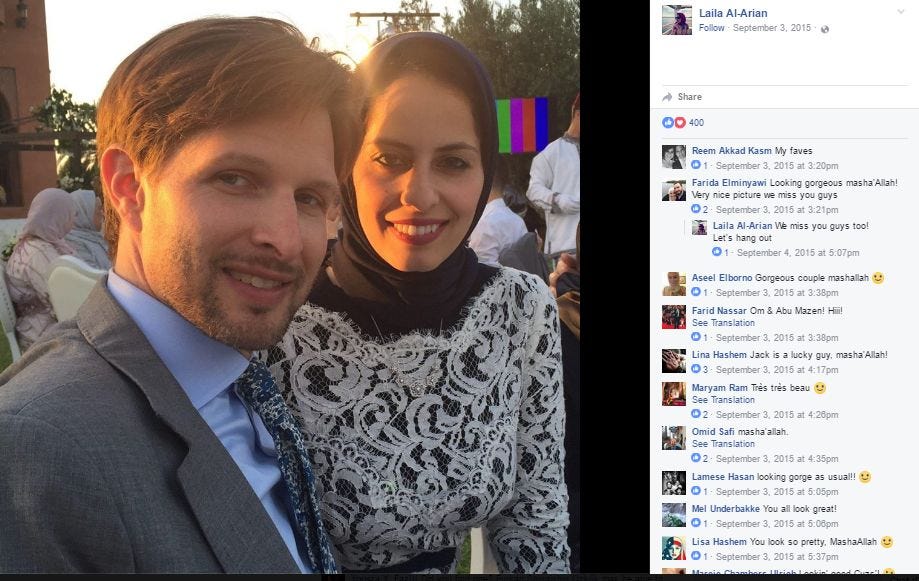
Background and Context
The controversy erupted on June 22, 2025, when Brown posted on X during the ongoing Israel-Iran war: "I'm not an expert, but I assume Iran could still get a bomb easily. I hope Iran does some symbolic strike on a base, then everyone stops." The post came one day after the United States entered the war by launching strikes on Iranian nuclear facilities. Iran subsequently conducted a strike on a U.S. base in Qatar the following day.
Despite his later attempts to walk back the comments, the original post clearly articulated a desire for a hostile foreign power to strike U.S. forces. In a follow-up post, which he was pressured by university administrators to delete, Brown explained: "I deleted my previous tweet because a lot of people were interpreting it as a call for violence. That's not what I intended. I have two immediate family members in the US military who've served abroad and wouldn't want any harm to befall American soldiers… or anyone!"
University's Administrative Response
Georgetown's initial reaction appeared decisive but ultimately proved inadequate given the gravity of Brown's statements. Within minutes of learning about the post, according to Interim President Robert M. Groves' testimony before the House Committee on Education and the Workforce on July 15, the university contacted Brown and removed him from his position as interim department chair. On June 26, David M. Edelstein, then Interim Dean of Georgetown's College of Arts and Sciences, formally notified Brown that the university would not renew his position as interim chair specifically because of his June 22 tweet.
The university's official stance initially appeared decisive. A Georgetown spokesperson stated they were "appalled that a faculty member would call for a 'symbolic strike' on a military base in a social media post," describing Brown's original statement as "deeply inconsistent" with the university's values, according to The Hoya.
However, the university's response has been undermined by its failure to take stronger action and its apparent tolerance for the defense campaign mounted on Brown's behalf. During the congressional hearing, Groves revealed that Brown was merely "on leave" while the university conducted what appears to be a perfunctory review, with Brown retaining his prestigious endowed professorship and full tenure protections.
Troubling Defense of Professor Brown
The Georgetown chapter of Students for Justice in Palestine (SJP) launched an extensive letter-writing campaign urging the university to reinstate Brown, collecting over 950 messages from supporters—nearly double their initial goal of 500.

Student activist Fiona Naughton defended Brown's call for attacks on American forces, characterizing the university's minimal disciplinary action as establishing a "terrifying precedent." "In disciplining Professor Brown for his expression of free speech legally protected by the First Amendment, President Groves and our administration have demonstrated that they will sacrifice anyone on our campus — students and staff alike — if it will appease the Trump regime," Naughton told The Hoya.
The Hamas-linked Council on American-Islamic Relations (CAIR) issued a strong defense of Brown, arguing that criticism of his call for Iranian strikes represented a "willful misreading of his intent." CAIR wrote that "punitive action" against Brown contradicted Georgetown's values, warning that "universities must not allow their disciplinary processes to be hijacked by ideological pressure campaigns or online outrage mobs." This characterization remarkably frames legitimate concern over a professor hoping for attacks on U.S. military bases as an "outrage mob."
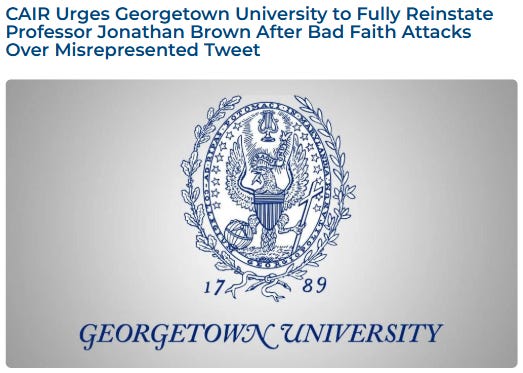
A Pattern of Extremist Behavior
Brown's recent call for Iranian strikes on American forces represents the latest incident in what critics describe as a long pattern of extremist behavior and controversial statements. Writer and former Georgetown professor Asra Nomani, who has extensively documented Brown's conduct, expressed little surprise at his latest controversy, noting that Georgetown has consistently ignored efforts by Muslim reformers to hold Brown accountable for what she characterizes as extremism funded by Qatari money.
According to Nomani's documentation, Brown has a history of defending extremist positions, including disturbing 2017 statements defending sex slavery in Islamic contexts where he argued that consent was not necessary for lawful sex with enslaved women. These statements, which briefly gained media attention, demonstrated Brown's willingness to defend practices that most would consider morally reprehensible.
Nomani also documented Brown's allegedly aggressive and intimidating behavior, including a 2019 incident at an Islamic conference where she describes him as displaying uncontrolled rage, shouting at critics, and engaging in harassment behavior that she argues demonstrates his unfitness to teach future American leaders.
Beyond personal conduct, Nomani alleges that Brown's academic work through Georgetown's Bridge Initiative functions as propaganda that targets Muslim reformers while promoting extremist narratives under the guise of combating "Islamophobia."
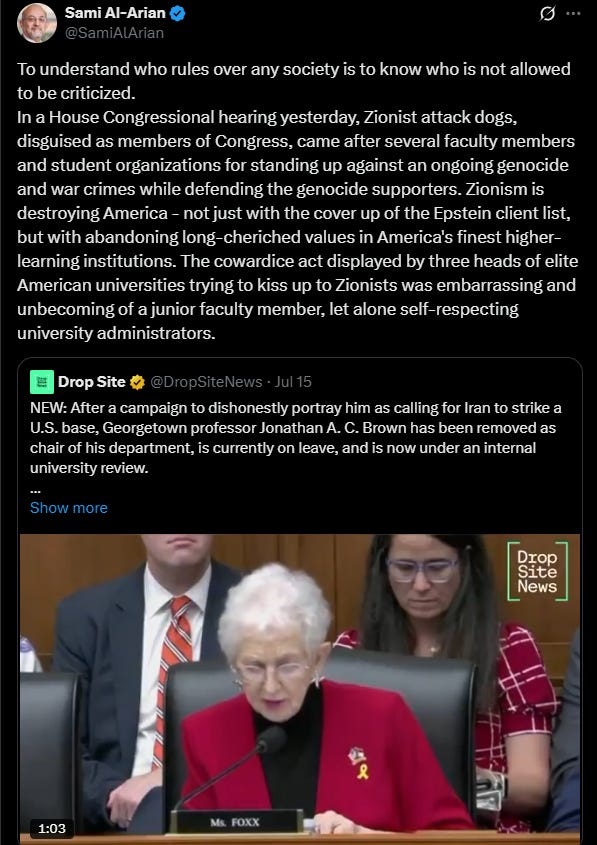
Congressional and Political Response
The controversy stirred national attention when House Rep. Virginia Foxx questioned President Groves about Brown's post during the House Committee on Education and the Workforce hearing focused on antisemitism in higher education. Committee Chairman Tim Walberg (R-Michigan) called Groves' announcement about Brown's removal "encouraging" but "long overdue.”
The hearing was part of ongoing congressional oversight of universities following the October 7, 2023 Hamas attack on Israel. Previous hearings had resulted in the resignations of university presidents from Harvard, the University of Pennsylvania, and Columbia after controversial exchanges with lawmakers, according to The Washington Post.


